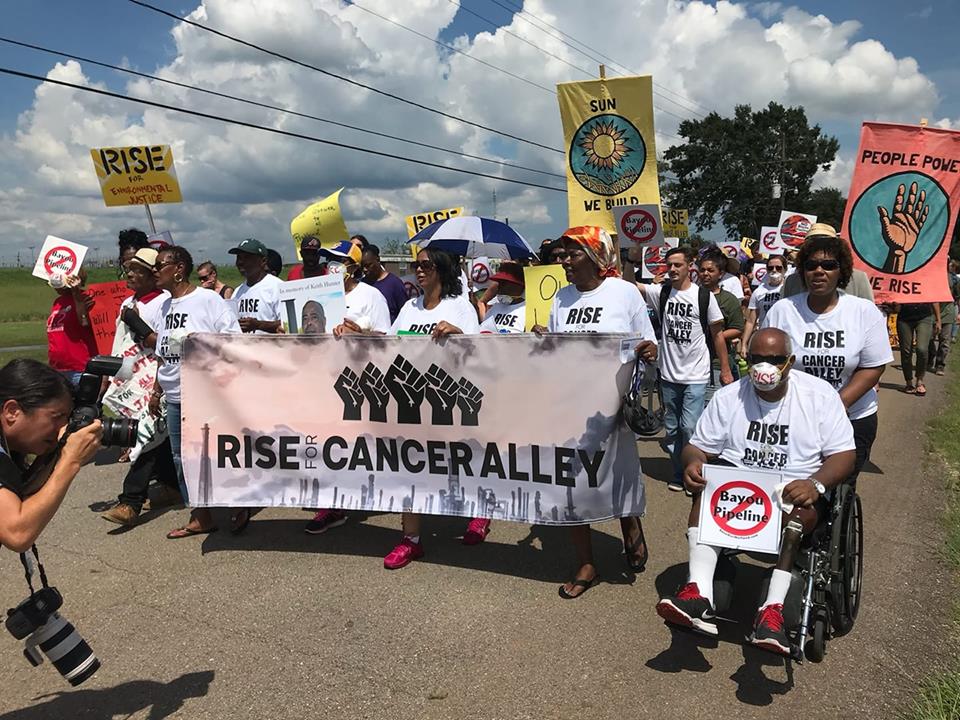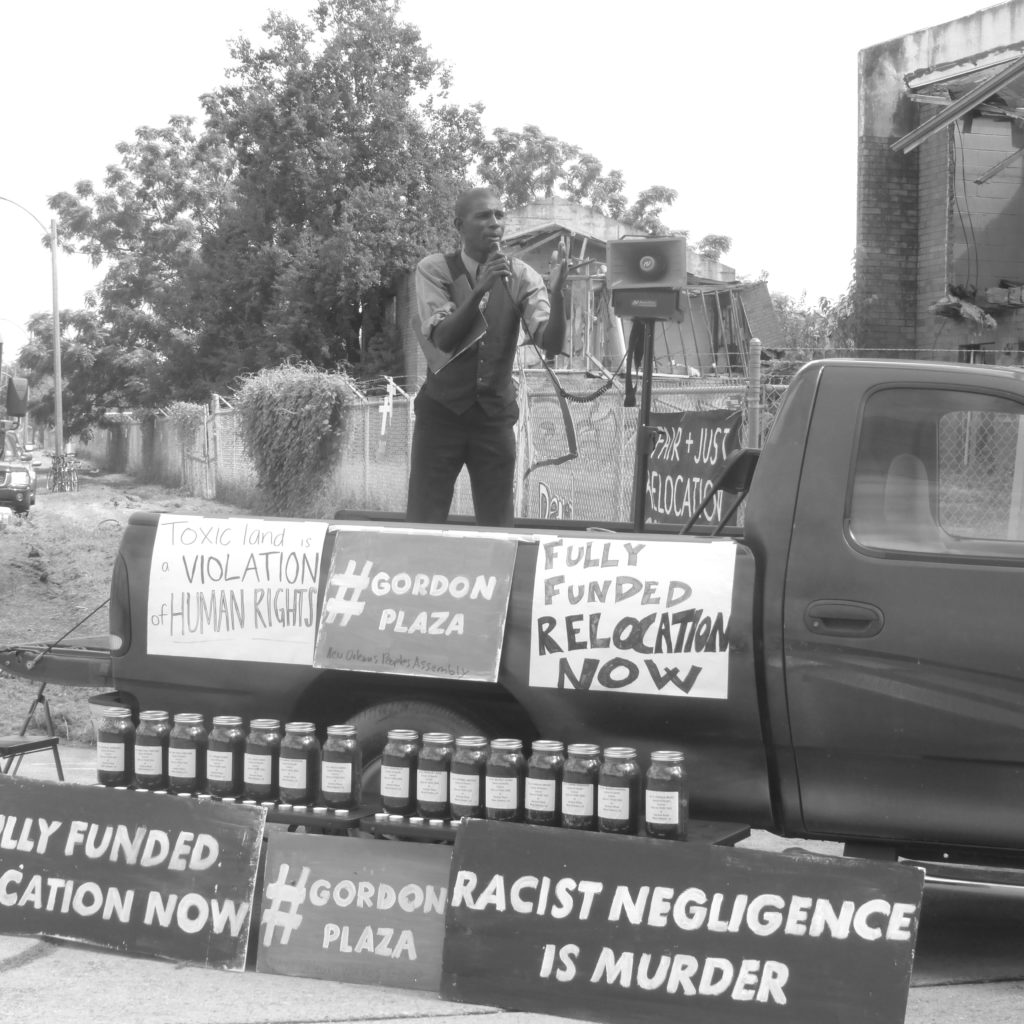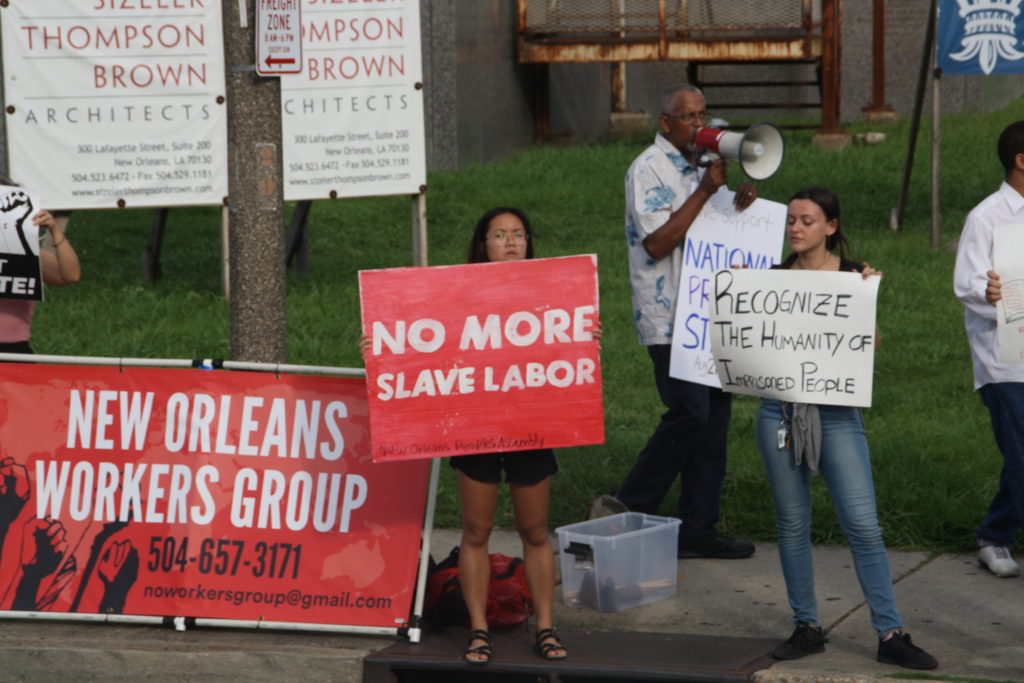By Joseph Rosen
JPMorgan Chase just raked in the largest quarterly profit of any US bank ever ($8.3 billion), and corporate owned media outlets report that the economy is booming. But we workers know better than to hitch our wagons to the stars of Wall Street. Only 10 years ago, the banks went broke gambling on the wealth created by our labor and it was our jobs, our homes, and our lives that were served up as sacrifice so that the gods of finance would stay fat. The government bailed out the banks with $12 trillion of our dollars.
Has the economy improved for workers as well as bankers? What are workers to make of the much-celebrated upturn in employment that Trump smugly claims credit for? We’re told, for example, that unemployment among Black workers is at record lows. So why don’t these figures square with our experience? After all, nearly half of Black men in New Orleans still lack jobs. Who’s seeing all these economic gains when for most of us, it’s as hard as ever to find affordable housing or to keep from being drowned in debt?
Who counts as employed?
Official unemployment statistics are taken by survey and published by the Bureau of Labor Statistics (BLS) every month. According to this agency, any person over the age of 16 who has worked one hour of paid work in the week counts as “employed.” That goes for all 4.6 million part-time workers struggling to get full time work. On the other hand, there are 5.4 million people who currently want a job but have not looked for work in the last 4 weeks. Like a sick joke, these workers aren’t considered unemployed because according to BLS, they are not part of the labor force. If the unemployment figures were revised to include these groups of workers, this adjustment alone would more than double the “official” rate of unemployment. That’s not mentioning the more than 2.3 million people locked up in prisons and detention camps whose hard, unpaid labor generates billions of dollars of corporate profits every year.
Less than half of the workers who lost their jobs during the 2008-2009 recession have regained employment (consider that because of the crash, workers suffered the steepest drop in employment since the Great Depression); most of these workers are no longer counted as part of the labor force. This steep decline and slow recovery in labor force participation has been hovering around levels comparable to the late 1970s for the past three years.
In New Orleans, tens of thousands of workers have been barred from regular employment because of criminal convictions. Excluded from the official “labor force,” these men and women most often work for poverty wages without job security or safety protections, and many have been forced into the underground economy.
Capitalists talk jobs but love unemployment
In capitalist economies such as the US, off-the books workers as well as the underemployed, incarcerated, and institutionalized form a massive reserve of workers whose desperation is played by the capitalists as an advantage over the workers they hire. All bosses want labor as cheap as they can come by it. The more desperate people are for work, the more likely they are to take a job with low pay and/or few benefits. Workers with full time jobs are discouraged from bidding up their wages when they’re told that there are others in the wings waiting to take their place. The capitalists who control the giant monopolies know this all too well. They sponsor and advocate for legislation that criminalizes classes of workers to drive them into the shadows. They (legally!) pay sub-minimum wages to disabled workers, farm workers, youth and domestic and home health care workers. They benefit from slave labor in US prisons and jails. What the working majority knows as misery is profit for the capitalist class. Capitalists and their lackey politicians push for anti-union legislation or invest in mass incarceration because these attacks on workers have the effect of lowering all wages so that profits go up.
As much as it’s hyped, “full employment” is not the goal of US capitalists because it would allow workers too much power, enabling them to bid up wages through the threat of strikes. In fact, over the last roughly 40 years, the number of unemployed workers has actually risen. Meanwhile, US workers’ wages have stagnated despite substantial gains in productivity. The benefits of technological advances all go to the boss while workers, whose labor paid for them, are laid off.
The persistent downward pressure on wages has meant that even employed workers struggle to put food on their table. In 2016, 14.8 percent of full-time, year-round workers (16.9 million people) earned less than the official poverty level for a family of four ($24,563). In New Orleans, 12 percent of full-time, year-round workers earn less than $17,500 a year.
Unemployment is an inevitable feature of the capitalist economy as are the economic crises that swell the ranks of the unemployed and lay waste to our productive capacities. But we should take heart that capitalism itself is far from inevitable. Those among us who are employed must recognize the struggle of our underemployed, unemployed, incarcerated, and undocumented brothers and sisters as our own. Our advantage against the bosses is only as strong as our unity. We cannot deceive ourselves about the nature of the capitalist system and its drive towards economic crisis: far too many of us already live in crisis but soon enough and suddenly, it will spread. As always, the capitalists will expect us to pay for their greed. We must not only refuse them payment; we must reverse the charge. We must fight for socialism.





